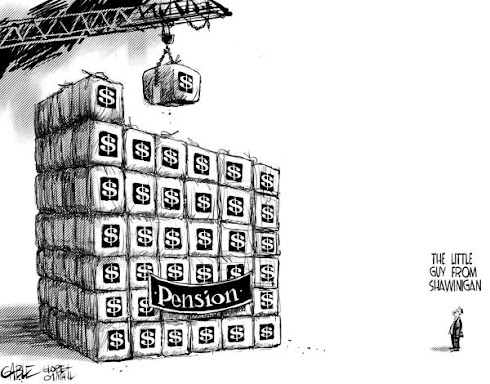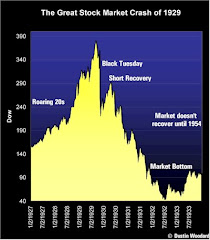The Wall Street Journal highlights this gap in an article The Government Pay Bonus. They point out that private employees toil 13½ months to earn what federal workers do in 12:
Pay cuts, layoffs and the highest unemployment rates in decades have reignited a debate over the relative treatment of public and private workers. USA Today reported in March that federal workers earn substantially higher wages than private sector employees who work the same types of jobs.In Las Vegas they covered the topic with and article called Welcome to Planet Government where your servants are better paid than you
Nevertheless, salaries are only one part of total compensation. Government employees may also receive more generous health and pension benefits than Americans working for private enterprise. So are federal employees overpaid? Data from the March Current Population Survey (CPS) suggest they are.
Federal employment also carries significant nonfinancial benefits—in particular that layoffs and firings are much rarer. If you think these aspects of federal employment lack value, ask any private employee who is now looking for work. A federal pay premium is unfair both to private workers, who receive less than their government peers, and to taxpayers who must cover the difference. Given our 2.7 million-strong federal work force, the government effectively overbills Americans by almost $40 billion every year just on labor costs.
If Washington demands "painful sacrifices" to make these programs solvent, as the slogan goes, it must first re-establish its credibility. Giving federal workers salaries, benefits and terms of employment comparable to those received by private workers would be a good start.
“For years, most people who worked for state or local governments accepted a fact of life: Their pay wasn't great. The job security was.Of course this is countered by the public sector unions who claim that the gap can be explained. The Canadian Congress of Labour try to explain the gap:
“Now that's gone, too.”
What planet are they on?
The federal wage premium for workers who have the same education and experience stands at 24%, still a windfall for public employees.
“Even using all the standard controls — including race and gender, full- or part-time work, firm size, marital status, region, residence in a city or suburb, and more — the federal wage premium does not disappear. It stubbornly hovers around 12%, meaning private employees must work 13 1/2 months to earn what comparable federal workers make in 12.”
In its study, the CFIB does not take into consideration factors that explain wage disparities that are known contributors to wage gaps. Such as the level of education of employees, size of employers and presence of a union, job tenure and previous work experience of employees, real working hours and the impact of pay equityThe argument is logical until the actual facts are examined. The union OPSEU did an actual study and the results they found were:
The News.Scotsman reported on the problem there. Yes it is the same in Europe as it is in the USA as it is in Canada. The only difference is that in Canada politicians are still too afraid to upset their biggest voting block. elsewhere around the world it is unavoidable. The day is coming where it will be necessary in Canada to end this travesty.
- Roughly 35% of respondents plan to retire within the next ten years.
- 81% of respondents have an annual income at or above the average income in the general population (which is $39,386). 37% of respondents have an annual income of $60,000 or higher.
- 42% of respondents have college-level credentials, 30% have university undergraduate-level credentials, and 10% have graduate-level credentials.
Politicians and campaigners called for the state sector to take its "share of the pain" after research showed it enjoyed vastly better pay and benefits packages compared to the rest of the economy.
The report also said that public-sector workers enjoy better pensions, shorter hours and earlier retirement than those employed in private industry.The CFIB - Canadian Federation of Independent Business has consistently brought attention to this problem. Recently they called for more public discussion of this issue and said it is Time to get really big elephant out of Canada's living room
Private-sector employees work 23 per cent longer – the equivalent to an extra nine years and ten weeks
Add benefits, such as pension contributions, and the gap increases to a shocking 42 per cent. Imagine the public sector howling if these differences were reversed.
Think this only happens in Ottawa? Not so: provincial and municipal wage discrepancies exist, too. In Vancouver, municipal employees get paid 11 per cent more than equivalent jobs in the private sector. Add in benefits and the premium jumps to 35 per cent.
Now you know why your property taxes are so high.Not surprisingly, those in the public sector retire earlier, too -- at an average age of 59, compared with 62 in the private sector and 65 for the self-employed.
How is this even remotely fair when it is the private sector that takes the risks that generate the wealth to pay for these bloated public-sector wages and benefits?



No comments:
Post a Comment